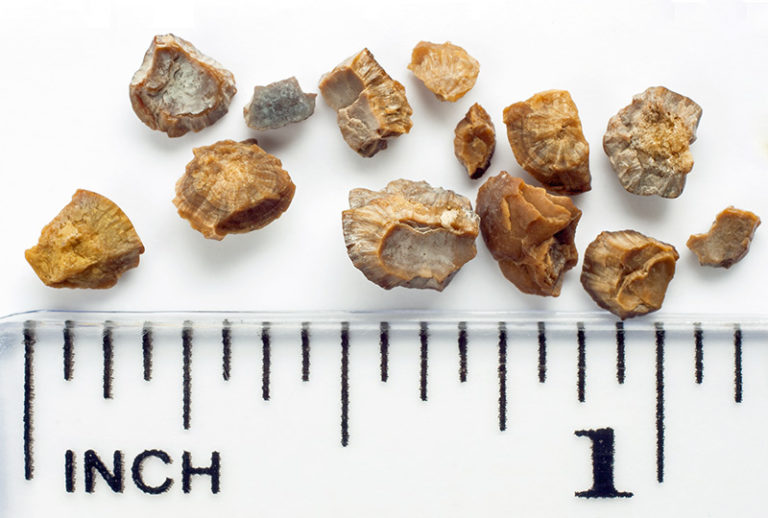
Most people associate alcohol abuse with damage to the liver, but other factors can also play a role. These are the health conditions, drugs, and lifestyle habits that can cause cirrhosis of the liver, liver failure, liver disease, or liver cancer.
Your liver is the largest organ in your body, and it has some equally big responsibilities: filtering the body’s blood, processing nutrients, helping to fight infection, producing proteins you need for blood clotting, and much more. But all these jobs mean your liver is vulnerable to assault on multiple fronts. If it becomes damaged, scarring (cirrhosis) can occur, which can eventually cause liver failure or cancer.
And while most people associate liver damage with alcohol abuse, other factors can also play a role. Here, the health conditions, drugs, and lifestyle habits that may cause your liver to become damaged—and what you can do to keep this vital organ healthy.
OBESITY
Obesity is thought to play a role in nonalcoholic fatty liver disease (NAFLD), which affects between 80 and 100 million people in the United States and “will soon be the number-one reason for liver transplantation in the U.S.,” says David Bernstein, MD, chief of hepatology at Northwell Health in Manhasset, New York.
It happens when too much fat gets stored in liver cells. While experts don’t know exactly what causes NAFLD, the condition is also linked to metabolic syndrome, high blood pressure, and high triglyceride levels, in addition to obesity.
When liver cells have too much fat, cirrhosis and liver failure can occur. Although people in their 40s and 50s have a higher risk of developing NAFLD, researchers have also seen it in obese adolescents.
SODA
Sugar-laden sodas are a notorious cause of weight gain, so it’s not surprising that they’ve also been linked to liver damage. One study published in The Journal of Hepatology found that people who drank one or more sugar sweetened beverages a day had higher markers of fatty liver disease than those who didn’t drink any sugary drinks, or who opted for diet varieties (although this doesn’t mean that diet sodas are a healthy choice).
This risk was highest among people who were already obese or overweight. Earlier research found that people who consumed two sugary drinks a day for six months showed signs of fatty liver disease.
The bottom line? Cutting back on soda has been shown to aid weight loss, and doing so may help keep your liver healthy, too.
ACETAMINOPHEN
Sold over-the-counter as Tylenol and by prescription as Vicodin or Percocet, acetaminophen in high doses can cause liver failure and even death. If an overdose is treated right away, the chances of surviving it are good—but a better course is prevention. Never take more than the recommended dose of acetaminophen (or any medication, for that matter) and make sure you aren’t taking more than one medication that contains the ingredient.
“There’s acetaminophen in dozens of products,” says Daniel F.Schafer, MD, professor of internal medicine at the University of Nebraska Medical Center in Omaha. This includes many cough-and-cold formulas.
OTHER DRUGS
In addition to acetaminophen, other drugs can also harm your liver. For example, long-term use of anabolic steroids (male hormones that some athletes use to improve their performance) has been linked to a slightly higher risk of liver cancer. Illegal drugs, including heroin and cocaine, as well as dissociative drugs, can also cause liver damage.
For many reasons, avoid abusing drugs—legal and illegal. If you notice symptoms of liver damage (such as jaundice, dark urine, or pain in your abdomen) speak to your doctor and let her know about any drugs you may be taking.
HEPATITIS C
Chronic hepatitis B and C are responsible for most cases of liver cancer worldwide. Hepatitis C, the more common cause in the U.S., is spread through contact with infected blood, meaning you can get it from sharing needles, unprotected sex (though this is less common), and very rarely blood transfusions. Getting a tattoo with a dirty needle also puts you at risk.
Chronic hepatitis C infection can now usually be cured with drugs, but getting a quick diagnosis is essential: the disease is often referred to as a “silent killer” because many people don’t know they have hepatitis, and it can lead to cirrhosis and liver cancer, liver failure, and death if left untreated. “The key is early detection and getting people therapy,” says Dr. Bernstein.
Hepatitis B, which is also spread through infected blood, is less common in adults in the U.S. because a vaccine is available and recommended for most children.

GENETIC DISEASES
Genetics can also play a role in the health of your liver, and several hereditary conditions can lead to liver disease. The hereditary disease hemochromatosis, for example, causes a build-up of iron in the body, which can cause cirrhosis and eventual liver failure. Less common is Wilson disease, which causes a build-up of copper in the body, damaging not only the liver but also the brain and other organs as well.
Luckily, both conditions are treatable, if not curable. For hemochromatosis, iron levels in the body are reduced by regularly removing blood. For Wilson disease, certain drugs called chelating agents can remove copper.
AUTOIMMUNE DISEASES
Certain autoimmune diseases can also impact liver function. When the body’s own immune system mistakenly attacks the liver, it’s called autoimmune hepatitis. No one knows exactly what causes the body to turn on itself, but genetic factors may play a role. This disease usually affects women, and it’s more common in people who have another autoimmune disease as well. Primary biliary cirrhosis (PBC) is another autoimmune disease that usually affects women.
Both conditions can lead to cirrhosis and liver failure if not treated. Although there’s no cure for autoimmune hepatitis or PBC, treatment can keep you healthy. “As long as you keep things under control, you can live a normal life expectancy,” says Dr. Bernstein.
SMOKING
Here’s yet another reason to quit: Smoking can increase the risk of both liver cancer and cirrhosis of the liver. The toxic chemicals in tobacco smoke can cause inflammation and eventual cirrhosis. Smoking also promotes the production of cytokines, chemicals that cause even more inflammation and damage to liver cells. Another concern: In people with hepatitis B or C, smoking can increase the risk of hepatocellular carcinoma, a form of liver cancer.

























